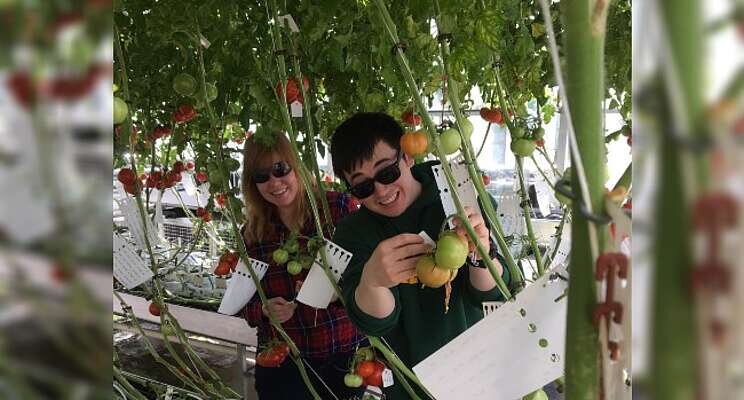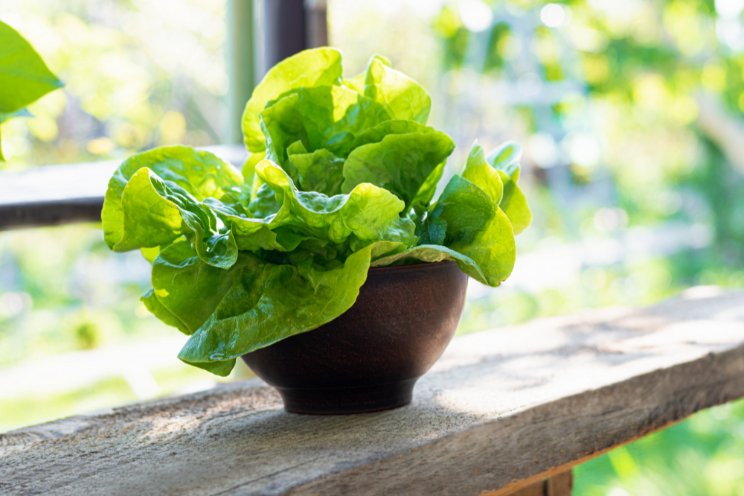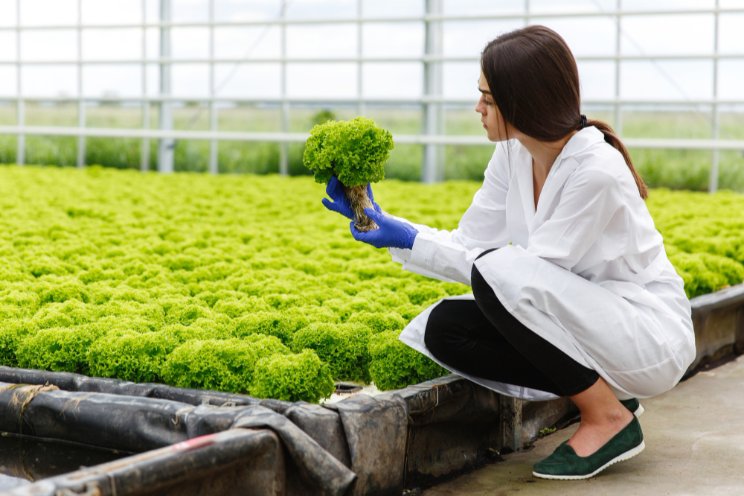Mapping tomato flavour preferred by consumers
Added on 02 March 2022

"Tomatoes like many other plants, carry nitrogen-containing volatiles derived mainly from the amino acids leucine and phenylalanine which were assumed to provide the nitrogen atom for these volatiles," says David Liscombe, PhD, Vineland's Research Scientist, Biochemistry and lead researcher for this project. "However, in our research, we found tomatoes produce nitrogenous volatiles in a unique way compared to other species - using cysteine as a source of nitrogen."
Cysteine is an amino acid present in all
organisms, and in plants, it plays a central role in converting sulfur from the environment into other amino acids and vitamins as well as flavour and defense- related chemicals.
"Well-known for its contribution to sulfurous chemicals like the pungent flavours in onion and garlic, we were surprised to find that cysteine is required to make all nitrogen-containing flavour volatiles in tomatoes, even those that do not contain sulfur," explains Liscombe. "This is a very different way to make these chemicals compared to other plants."
Vineland can now incorporate this important knowledge into its tomato breeding program to meet consumer preference for flavourful tomatoes.
These research findings have been published in the acclaimed Proceedings of the National Academy of Sciences of the United States of America. The article "A flavin- dependent monooxygenase produces nitrogenous tomato aroma volatiles using cysteine as a nitrogen source" can be accessed at a cost here.
Funding for this research has been provided by Genome Canada, the Ontario Ministry of Research and Innovation, Growing Forward 2, Ontario Greenhouse Vegetable Growers, the Canada Foundation for Innovation (CFI). A Canada
Graduate Doctoral Scholarship from NSERC supported Vineland's graduate student Christine Kempthorne.
Photo: Vineland team members Christine Kempthorne,
PhD Candidate, Biochemistry and Kevin Hooton, Senior Research Technician, Biochemistry
For more information, please contact: David Liscombe, PhD
Research Scientist, Biochemistry 905-562-0320 x826 david.liscombe@vinelandresearch.com
Source: HortiBiz
More news















